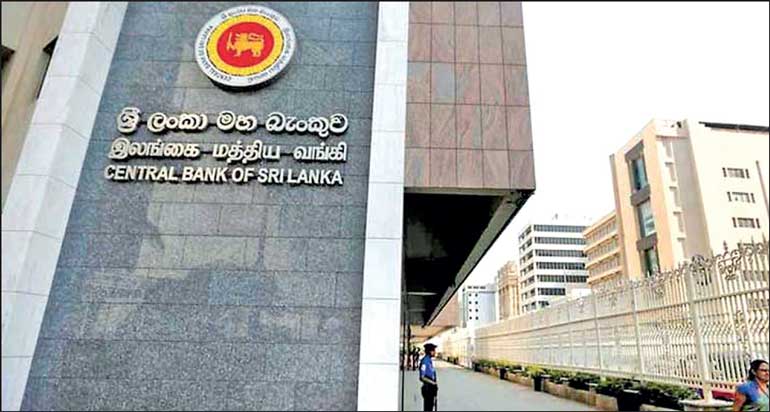Wednesday Mar 04, 2026
Wednesday Mar 04, 2026
Friday, 31 March 2023 00:00 - - {{hitsCtrl.values.hits}}

The independence for central banks demands higher degrees of accountability, competence and transparency, whereby CBSL policies must be explained and debated with those affected by their policies
 Well known Economics Professor Howard Nicholas said at an FT webinar last week that “CBSL cannot be independent of the government”..He however also emphasised that “there must not be political interference.” Even Margaret Thatcher, he noted “a top market reformist was not for an independent Bank of England.” Research suggests that the late Prime Minister Margaret Thatcher firmly opposed allowing unelected bankers to control interest rates. She famously asserted that she would never hand that control away. Dr. Howard further noted that the Central Bank through monetary policy should support the economic development of the country.
Well known Economics Professor Howard Nicholas said at an FT webinar last week that “CBSL cannot be independent of the government”..He however also emphasised that “there must not be political interference.” Even Margaret Thatcher, he noted “a top market reformist was not for an independent Bank of England.” Research suggests that the late Prime Minister Margaret Thatcher firmly opposed allowing unelected bankers to control interest rates. She famously asserted that she would never hand that control away. Dr. Howard further noted that the Central Bank through monetary policy should support the economic development of the country.
William Hague, another influential former Conservative leader, was equally blunt when he asserted that if central banks do not “change course soon, they will find their independence increasingly under attack.” In that case, he added, “The era of their much-vaunted independence will come, possibly quite dramatically, to its end”. For example many argue that by pursuing an inflation target at an unrealistic level the Central Bank has allowed the interest rates to increase to 30%+ levels for a sustained period of time. This has affected thousands of Micro and SME enterprises and impacted the lives of hundreds of people, and created huge challenges for the banking system through funding and pricing mismatches.
Analysts point to S86(1) of the proposed new Monetary Law which says: “The Central Bank shall not, directly or indirectly, grant credits to the Government or any public authority owned by the Government or to any other public entity.” In a national crisis, like the COVID pandemic, the Central Bank will not be able to finance the Government, and the government revenues will be insufficient to fund essential services without Central Bank financing. Article 148 of the Constitution clearly states that Parliament has full control over public finances. The Central Bank determining interest rates has a direct impact on public finances, as our debt is around 110% of GDP and interest expenses on debt are the single largest expense of the Government.
Decisions that impact on public finance such as the above, should be made in consultation with Parliament. This bill clearly needs to have much more clarity on how conflicting interests of inflation targeting, policy rate setting and exchange rate management by the Central Bank – all in the interests of price stability, are dealt with alongside the management of EPF funds, acting as the Government’s debt issuers and the supervision, regulation and stability of financial institutions in the larger interests of the general public. In other jurisdictions these activities are carried out by institutions independent of the Central Bank and working in tandem with the Central Bank. Having these functions within the Central Bank contradicts its claim of independence and technically breaches its fiduciary obligations according to experts.
Independence
Ensuring independence from powerful politicians for central banks is imperative to prevent unnecessary and vested interference. To get that autonomy they must demonstrate that they understand the political pressures and unusual economic circumstances high interest rates have on the poor and SMEs. Refusing to debate this and other implications of current monetary policies is not an acceptable response to the public. In the final analysis the independence for central banks demands higher degrees of accountability, competence and transparency, whereby CBSL policies must be explained and debated with those affected by their policies. This way the necessary political consensus to give independence for a Central Bank to function professionally could be achieved and sustained.
References:
https://www.independent.co.uk/news/uk/politics/national-archives-margaret-thatcher-faced-down-cabinet-to-block-britain-joining-erm-a7146271.html?amp
https://www.centralbanking.com/central-banks/governance/organisation/7954060/sri-lanka-cabinet-approves-draft-of-new-central-bank-law
https://youtu.be/0DlMYpVgFMc